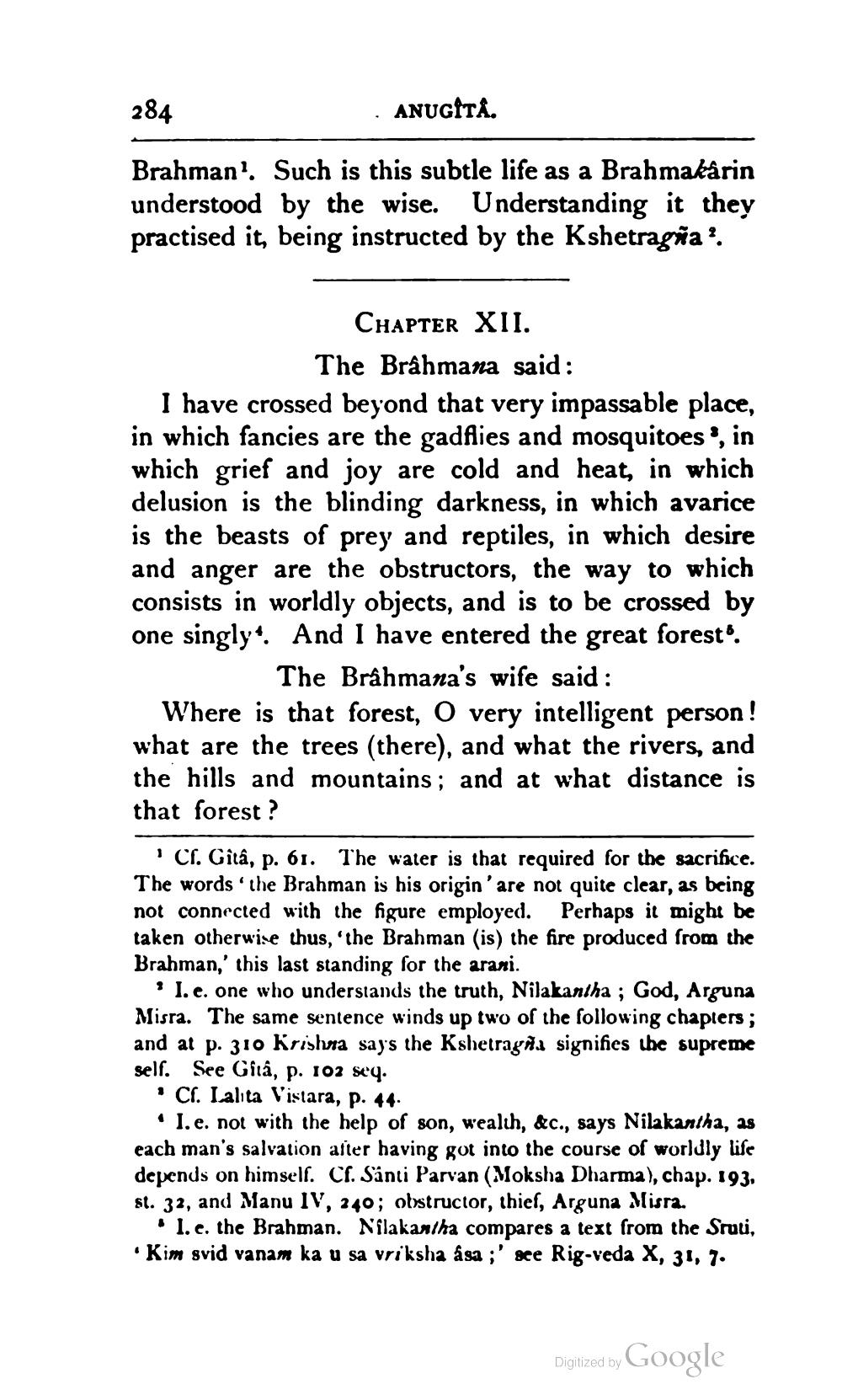________________
284
· ANUGITA.
Brahman'. Such is this subtle life as a Brahmakärin understood by the wise. Understanding it they practised it, being instructed by the Kshetragña?.
CHAPTER XII.
The Brâhmana said: I have crossed beyond that very impassable place, in which fancies are the gadAies and mosquitoes., in which grief and joy are cold and heat, in which delusion is the blinding darkness, in which avarice is the beasts of prey and reptiles, in which desire and anger are the obstructors, the way to which consists in worldly objects, and is to be crossed by one singlyt. And I have entered the great forest.
The Brâhmana's wife said : Where is that forest, O very intelligent person ! what are the trees (there), and what the rivers, and the hills and mountains; and at what distance is that forest ?
Cl. Gitâ, p. 61. The water is that required for the sacrifice. The words 'the Brahman is his origin' are not quite clear, as being not connected with the figure employed. Perhaps it might be taken otherwise thus, 'the Brahman (is) the fire produced from the Brahman,' this last standing for the arani.
'I. e. one who understands the truth, Nilakantha ; God, Arguna Misra. The same sentence winds up two of the following chapters; and at p. 310 Krishna says the Kshetragða signifies the supreme self. See Gitá, p. 102 seq.
• Cl. Lalita l'istara, p. 44.
• I.e. not with the help of son, wealth, &c., says Nilakantha, as each man's salvation after having got into the course of worldly life depends on himself. Cf. Santi Parvan (Moksha Dharma), chap. 193, st. 32, and Manu IV, 240; obstructor, thief, Arguna Misra.
I.e. the Brahman. Nilakantha compares a text from the Sruu, • Kim svid vanam ka u sa vriksha åsa ;' see Rig-veda X, 31, 7.
Digitized by Google




